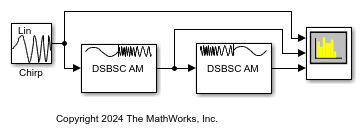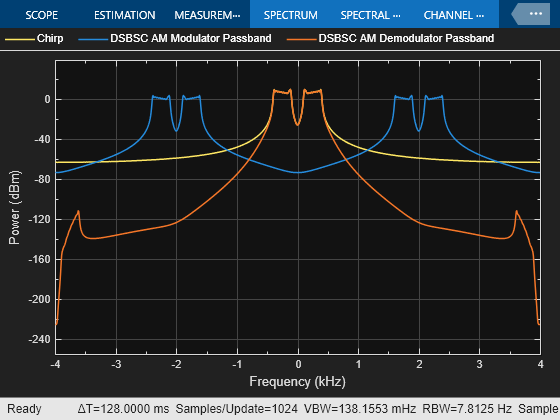DSBSC AM Demodulator Passband
DSBSC-AM 変調されたデータを復調する
ライブラリ:
Communications Toolbox /
Modulation /
Analog Passband Modulation
説明
DSBSC AM Demodulator Passband ブロックは、両側波帯抑圧搬送波振幅変調を使用して変調された信号を復調します。入力信号と出力信号は両方とも実数のスカラー信号です。
例
制限
このブロックは、Triggered Subsystem 内では機能しません。
端子
入力
出力
パラメーター
ブロックの特性
データ型 |
|
多次元信号 |
|
可変サイズの信号 |
|
バージョン履歴
R2006a より前に導入

